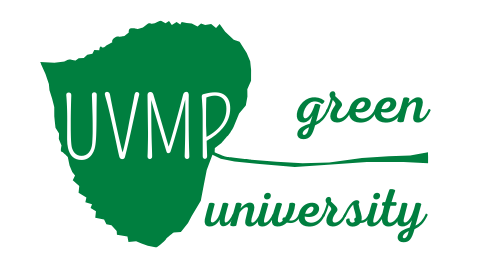
Waste sorting – is it even worth the effort?
Have you ever asked yourself the question "Why is it important to sort waste?", "Why should I bother?". There are many reasons!
First of all, let us discuss municipal waste. According to available information, Slovakia produces up to 1.9 million tons of municipal waste per year. This type of waste is the most common type of waste ending in waste containers. However, there is a better and more sustainable solution to that. The most alarming information is that up to a half of that waste could be sorted if we all tried! As a result of the population growth, the expansion of industry and the overproduction of goods, the amount of generated municipal unsorted waste increases in direct proportion. Municipal waste is a mixture of different waste that is either incinerated or exported to landfills. Landfills are usually located on the outskirts of towns, hidden away from the eyes of residents. This may be one of the reasons why many people do not pay enough attention to waste sorting. Although the attitude of the general public towards waste storing has changed in recent years, new procedures and systems are lagging behind. We still lack strict waste management rules (for large companies and households alike).
In fact, there is no real reason why we could not sort waste. We just need to try. Waste sorting costs us nothing, it is easy and accessible to everyone. Ultimately, it reduces the volume of municipal solid waste, saves natural resources, the environment, and even reduces production costs!
From the point of view of health, incinerators are a huge risk. Municipal waste incarnation releases into the atmosphere dioxins are toxic chemical compounds that are soluble in fats and fat-like organic compounds (yet poorly soluble in water). They are contaminants of the global ecosystem, including air, water, fish, wildlife, humans, adipose tissue and milk. 98% of chemical pollution by these substances is caused by human activity.
Waste sorting also brings social benefits, like new jobs, environmental protection education, community projects and shapes people's attitude towards nature.

From an economic point of view, it is important to realize that we do not pay for sorted waste. In addition, companies that process raw material reduce costs when they use secondary raw materials, and thus are able to offer their products at lower prices. Last but not least, the construction and operation of recycling technologies is significantly cheaper than the construction and operation of incinerators or landfills. Illegal dumps are a big problem in Slovakia, too. It is difficult to find out who is responsible for illegal dumps and it is usually volunteers who work to remove them. It is estimated that there are about 6,000 illegal dumps in Slovakia (various types of small waste), usually in the vicinity of roads.
By sorting waste we not only reduce the amount of unsorted waste, but also help save natural resources and raw materials as secondary raw materials that re-enter the production process mean we do not have to extract so many primary raw materials. By doing so we prevent more territories from being devastated. Let us not forget that even the smallest things can lead to big changes. Waste sorting has a positive impact not only on us, but on the nature as a whole and future generations.
The positive news is that collection containers of different colours - yellow, blue, green, brown, red or even orange - are becoming a norm across towns and municipalities. To make them efficient, it is important to educate residents about waste sorting. We all know that yellow containers are designed for plastic waste, but you also need to know what type of plastic can be put in there. The same applies to paper, multilayer packaging or even metals. We must not forget other types of waste such as electrical waste, expired drugs, oils or hazardous waste. These types of waste have their own collection containers. Let us take a plastic bottle. Plastics have a very long degradability time, up to 450 years. By collecting them, we prevent them from decomposing into microplastics, which have been found in aquatic animal samples. Living organisms are not able to process microplastics and so they are "trapped" in the cells. When these microplastics enter food-producing animals, they pose a risk to human health, too. In 2018, a worldwide survey conducted by Orb Media which monitored the presence of microplastics in samples of drinking water sources came with surprising results - of the 159 water samples, up to 83% were found to contain microscopic plastic fibers. Microplastics have also been found in drinking water sources in Slovakia.
You are probably wondering what could be done to make the world more sustainable. As always, you have to start with yourself. Start by sorting the waste you produce. Your neighbour does not sort waste? Well, it is their choice. Do not be discouraged by that and do not listen to people who say that all waste ends up in one place. You can make the difference! Let's be an example to others! Let's encourage! Let's inspire! When buying pastries, use a linen bag instead of a plastic one. Let's buy loose fruits and vegetables. Stop buying food that you will not eat – plan your meals and avoid food waste. Let's ditch plastic bags and start using environmentally friendly ones. After a while, we will get used to ecological ways and they will come natural to us. In addition to producing less waste and saving money by not buying things we don’t need we will also enjoy a nicer and healthier environment. Let's start today and show people around us that waste sorting is worth the effort and has a positive impact on the environment. Let’s create a brighter future for us all.
Drawn up by: Rastislav Ringer, 2nd year - ŠP VVL